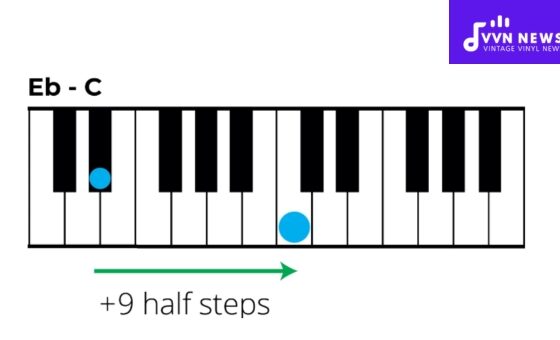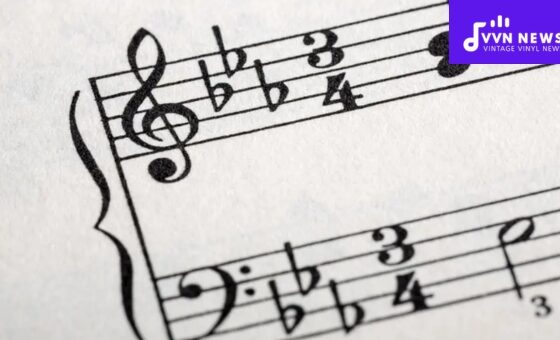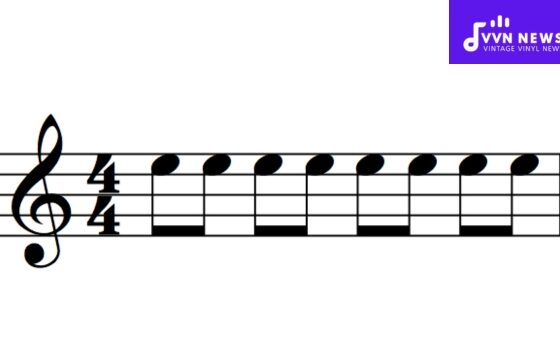Ever since I can remember, there’s been a melody fluttering through my life. It’s a melody that shifts and evolves but never fades away, much like the industry it represents.
In our world today, music is more than just background noise. It has become a thriving landscape of varied professional pathways; that’s why understanding the types of music majors, careers, degrees, & programs is integral.
Indeed, the music industry isn’t all about grabbing the mic and owning the stage.
It ventures beyond with many career possibilities embedded in technology, education, therapy, and management, to name but a few.
For those considering music-related careers for your future or for those looking to add to their existing skill set or even change their career path, bear with me as we delve into the symphony of opportunities layered within each note of the music world.
15 Types of Music Majors Careers

The broad appeal of music offers a myriad of career opportunities, each one as exciting and rewarding as the next.
Let’s perform a deep dive into these pathways to understand the potential they hold.
From jazz studies to music therapy, there are vast options for those called by the seductive siren of harmony and melody.
These distinct choices cater to individual preferences in style, technique, genre amongst other nuances within the musical universe.
1. Jazz Studies
Jazz Studies is the perfect major for those with a passion for jazz and an interest in delving into its rich cultural and historical relevance.
This program offers a well-rounded foundation that embeds technical skills, theoretical learning, as well as collaborative experiences.
Classes are often designed around performance, improvisation, composition, and history.
A Graduate from Jazz studies can pursue careers in fields such as professional performing, teaching or composing.
The ever-evolving nature of the jazz genre opens up opportunities for graduates to stamp their unique styles into the music industry ecosystem.
2. Performance (Jazz, Rock, Classical, etc.)
Performance majors involve an intense focus on instrumental or vocal training in a choice musician’s genre – be it jazz, rock , classical, etc .
The coursework includes individual instructional lessons, ensemble participation, academic music courses (such as music theory and music history), along with general education requirements.
The goal is to produce performers who not only excel technically but also interpret music pieces with genuine emotion and artistic flair.
Also Read: F Sharp Major Chords [Boost Your Guitar Skills Today]
3. Composition (Classical, Contemporary)
Whether you aspire to write symphonies or create soundscapes for films, taking up a major in Composition is a big step towards achieving such goals.
Within this degree program students explore their creative depths while building their notational literacy – gaining proficiency in both classical and contemporary composition techniques.
Students immerse themselves in understanding the language of different musical styles, thus nourishing their ability to effectively communicate emotions through music.
This program cultivates aptitudes needed for creating original compositions – making it ideal for future composers, orchestrators or even adventurous creators ready to tackle emerging digital platforms(large number of composers are now working on video game compositions).
4. Music Education (Leadership in Pedagogy)
Music Education with a focus on Leadership in Pedagogy is the perfect blend of these career paths.
As a music education major, you’ll study how to design and implement comprehensive music curricula that cater to different learning stages, from early childhood to collegiate level.
A music educator’s job isn’t just conveying musical knowledge; it’s inspiring others with your love for music and enabling them to express themselves creatively through this universal language.
It’s an arduous but nonetheless rewarding journey that requires a strong foundation in pedagogical theory, curriculum designing, leadership skills, alongside competency in at least one musical instrument.
A degree program in this field usually includes courses such as Fundamentals of Music, Music Theory, Conducting, and Music History along with classes on educational psychology and teaching methods.
5. Music Business/Management
If you’ve ever been intrigued by the intricacies of what happens behind-the-scenes in the vibrant world of music, then a career in Music Business/Management might pique your interest.
The business side of music is as crucial as the creative aspect because they operate hand-in-hand; great talent coupled with shrewd management can lead to phenomenal growth.
Also Read: Dorian Mode [Major Scale’s Lesser-Known Sibling Explained]
6. Songwriting (Contemporary, Pop)
Songwriters are primarily responsible for creating songs from scratch; they determine both melody lines and lyrics that make up tracks which could potentially top charts internationally.
A deep understanding of popular contemporary genres – pop, rock, country – their conventions along with superb creativity will set you apart in this field.
Courses typically include Lyric Writing, *Harmony_, Arranging, whereby students are taught not only about song structure but also given opportunities to co-write songs thereby building their portfolios.
7. Contemporary Writing and Production
In the realm of Contemporary Writing and Production (CWP), prospects are geared towards folks with a keen ear for creating & shaping music suitable for the contemporary markets.
This major can encompass myriad genres, be it pop, R&B, rock, indie, jazz or Latin.
The focus of a degree in CWP is to equip you with an understanding on how to arrange & produce professional-sounding tracks.
Most importantly, this specialization trains you to use industry-level technology software such as Logic Pro and Pro Tools.
Graduates typically land jobs as songwriter-producers, film composers or arrangers.
8. Arranging
Arranging is an art — a delicate ballet where various instruments pirouette around each other in perfect harmony.
Music arrangers are responsible for taking an original piece of music and transforming it into an orchestra-ready arrangement or adapting a track to suit different instruments.
9. Electronic Production and Design (or Sound Design)
Electronic Production and Design majors delve into realms of synthesized music production through programs like Ableton Live and Reason while exploring newer areas of sound design like sonic branding or game audio design.
This pathway builds your acumen as an audio designer/engineer allowing usages within entertainment sectors such as film or video games apart from conventional music production norms.
Also Read: G Major Scales And Chords [Expand Your Musical Understandings]
10. Film Scoring (or Scoring for Visual Media)
Film scoring refers to creating original music for visual media like movies, advertisements, TV shows, or video games.
This involves mastering the art of composition as well as advancing technical skills on tools related to sound design and synchronization.
Career-wise, adept film score composers often work for movie studios, production companies, or game developers.
A degree program in Film Scoring entails comprehensive training in orchestrating and arranging, conducting, synthesis, sampling, and MIDI sequencing.
You’ll find yourself immersed in a creative process to craft emotionally provocative soundscapes that accentuate storylines or brand representation.
11. Music Production and Engineering (or Audio Engineering)
Stepping into a world of knobs and faders, music production signifies the technological aspects of music.
As a Music Production and Engineering major, you will study the principles of sound engineering like microphone techniques, signal flow, recording studio etiquettes as well as explore modern production methods using software applications like Pro Tools, Ableton Live or Logic Pro X.
This career choice comes with significant responsibilities including overseeing all aspects of recording sessions right from choosing appropriate equipment to mastering final versions.
Whether your dream lies in running your own recording studio or engineering chart-topping hits in top facilities, this pathway setting can tune you for success.
12. Arts Administration
Arts Administration is a field that merges business and creativity in the music industry.
Careers in this domain include becoming an arts manager, a museum director, or taking up positions responsible for fundraising, marketing, development and event planning in performing arts institutions.
To delve into this career pathway, one may opt to pursue a Bachelor’s or Master’s Degree in Arts Administration or in related fields such as non-profit management or arts policy.
As an Arts Administrator, one needs to exhibit skills such as arts advocacy, budgeting and financial management.
13. Music Technology
One of the newest branches of the musical tree is Music Technology. This field combines music and technology to enhance both creation and consumption of music.
It is a broad field encompassing areas like recording technology, electronic musical instruments, computer-aided composition and sound design among other things.
Predominantly technical yet requiring a solid understanding of music fundamentals, it paves way for careers like Audio Engineer or Music Producer.
Also Read: A Major Scale [The Key To Bright, Cheerful Musical Pieces]
14. Music Therapy
Last but not least on our triad is Music Therapy; a healing science that uses melody and rhythm to address physical, emotional, cognitive and social needs of individuals.
As a certified Music Therapist your work may embrace diverse populations from autism spectrum disorders to geriatric care; veteran affairs to palliative/hospice care — each scenario tapping into the therapeutic power of music!
15. Music Industry Studies
Music Industry Studies is an expansive discipline encompassing various aspects of the music business, from artist management to record label operations.
It includes subjects such as music marketing, copyright law, and event management.
This major prepares students for a multitude of career paths, providing them with an in-depth understanding of the music industry’s intricate landscapes.
The curriculum often incorporates practical, hands-on experience in addition to traditional classroom learning, enabling students to apply their knowledge and skills in real-world scenarios.
If you’re set on a career in the music industry but prefer not to perform, this could be the perfect major for you!
15 Types of Music Major Degrees
When it comes to enhancing your musical prowess, investing in one of the 15 types of music major degrees is an invaluable step.
These degrees cater to a broad spectrum of musical aspects that serve as the foundation for various careers in the industry.
They are designed to meticulously train and equip students with the necessary skills, technique, and knowledge.
1. Bachelor of Music
A Bachelor of Music (often abbreviated as BMus) essentially hones in on developing your practical and theoretical skills to a professional level.
Unlike broader-oriented degrees, this one caters to students who particularly aspire to become performance or composition professionals.
The curriculum immerses you in various components of music including history, theory, literature and performance practices, with a stronger emphasis on specialization.
2. Bachelor of Arts in Music
A Bachelor of Arts in Music (abbreviated as BA) tends to provide a balanced blend of music study and liberal arts.
While this program does delve into the technical aspects of music, its focus broadens beyond simply performances and compositions.
This degree allows for interdisciplinary studies or double majors because it leaves ample room for other academic interests beyond solely music.
Also Read: B Major: The Scale And Chords [Guide To This Beautiful Key]
3. Master of Music
The Master of Music (MMus, M.Mus., M.M., or MM) degree is inherently performance-based.
Typically spanning over two years, this postgraduate degree prepares students to launch into a professional career in music or closely-related fields.
Candidates must demonstrate intense creativity and enthusiasm for their chosen instrument, be it voice, woodwind, brass, percussion or string.
They will need to commit significant time and energy into refining their craft.
4. Master of Arts in Music
On the other hand, the Master of Arts in Music tends to emphasize scholarly research and theoretical knowledge rather than performance skills.
Adopting a more academic approach towards understanding its composition and cultural history, this course offers insights into advanced music theory and analysis.
5. Doctor of Musical Arts
The Doctor of Musical Arts is an advanced degree that typically involves intense study in performance, pedagogy, or composition.
It’s considered a professional degree for musicians who aspire to enhance their artistic and technical capabilities.
The course often involves lecture-recitals, theoretical examinations, and a considerable amount of hands-up performance or composition time.
6. Doctor of Philosophy in Music
Doctor of Philosophy (PhD) in Music caters more to scholarly and academic pursuits. Candidates often specialize in fields like musicology, ethnomusicology, music theory, or music education.
A PhD usually involves a dissertation—an original contribution to the knowledge base of music—that candidates must defend before a panel of experts.
7. Bachelor of Music Education
The Bachelor of Music Education is a four-year degree program typically encompassing music theory, music history, conducting, performing in an ensemble and learning about foundations of education and philosophy of music education.
It is designed to prepare future educators to teach music in K-12 schools. This degree often leads to teaching licensure in the state where the degree is earned.
8. Master of Music Education
Continuing education beyond a bachelor’s degree comes with the Master of Music Education.
This advanced degree usually spans two years and offers in-depth learning opportunities for current teachers wanting to enhance their expertise or individuals interested in leadership positions within education settings.
Areas of focus often include curriculum development, research methods and advanced pedagogy.
Also Read: C Sharp Major Pentatonic Scale [Clear Tones For Your Music]
9. Bachelor of Music Performance
The Bachelor of Music Performance is a comprehensive 4-year degree program that goes beyond knowledge of music theory and reading music.
The curriculum usually involves studies in your primary instrument, ensemble work and classes in history and theory, not forgetting solo performance requirements.
Students will gain proficiency in sight-reading, improvisation and learn to master various musical styles.
This bachelor’s degree can indeed pave the path into professional stages or support your transition into related careers such as conducting or teaching.
10. Master of Music Performance
Taking a step further, the Master of Music Performance degree typically spans 2 years and it pushes students beyond their undergraduate studies.
Master’s students go deeper into mastering their instrument or voice, often specializing in specific genres such as jazz or opera.
There is an increased focus on interpretive skills, collaborative musicianship, along with experiential learning opportunities like internships and individualized study.
11. Bachelor of Music Composition
The Bachelor of Music Composition offers in-depth training in writing, orchestrating, and arranging music for various musical genres.
This undergraduate degree blends harmony, counterpoint, and orchestration courses with hands-on instruction in digital technology.
Students have multiple opportunities to hear their work performed and professionally recorded.
12. Master of Music Composition
Leveling up to a Master of Music Composition, you’re taken beyond the foundational knowledge.
This degree typically includes advanced courses in the analysis of tonal and post-tonal music, composition, scoring and arrangement for diverse ensembles as well as advanced orchestration.
As a creative peak experience resulting from this study, students compose a significant original work.
A master’s level understanding propels your musical composition skills to professional performance or even Professorial teaching levels.
13. Bachelor of Music Technology
This degree is the intersection of traditional music studies and modern technology.
It equips students with a robust background in music theory, performance, sound design, digital audio workstations (DAWs), and other relevant technology tools for music production.
The main goal of this program is to enable students to understand the science of sound and apply this knowledge practically.
14. Master of Music Technology
For those who have completed a bachelor’s degree in music and are looking to delve deeper, seeking a Master of Music Technology might be your next ideal step.
The program expands on foundational knowledge from the undergraduate level by introducing higher levels of acoustics, audio engineering, sound synthesis, digital signal processing, and software development related to audio applications.
The aim is to enhance students’ expertise both theoretically and technically; enabling them to become pioneers in technological advancements within the music industry.
15. Bachelor of Music Therapy
If your passion lies in the harmonious marriage of music and helping others, then this degree can set you on the path to becoming a licensed music therapist.
This curriculum is built upon the concept that music can be a transformative tool in promoting mental and physical healing. The coursework combines psychology, medicine, and of course, music.
Graduates of this program often find careers in healthcare settings such as hospitals or counseling centers, though opportunities exist in many different environments. It’s all about using the power of melody to improve quality of life.
The music industry is a diverse orchestra, playing in various movements that sometimes crossover and other times stand alone.
Let the harmony of your passion guide choices as you explore these major careers, degrees, and programs.
Also Read: A Flat Diminished Triad [Delve Into Rare Guitar Chords]
Colleges Offering Music Majors
If you’re deciding on a music major, the academic institution you choose can play a significant role in your future career. Here are some colleges that offer excellent programs for budding musicians:
1. Berklee College of Music
Located in Boston, Berklee is well-known for majors in jazz, contemporary music, and production.
2. Juilliard School
This prestigious conservatory situated in New York City offers exceptional programs in classical music, dance and drama.
3. Yale School of Music:
Yale’s unique programs focus on individual creativity – be it solo performance or composition.
It’s worth mentioning that the choice depends largely on the specific area you wish to specialize in.
Go through each school’s program offerings carefully before making a decision.
How to Choose the Right Program for Your Music Career Goals
So, how do you know which program is right for your career objectives? Here’s my humble guide to help you navigate through these harmonious decisions.
1. Understanding Your Career Goals in Music
Firstly, it’s crucial to understand your long-term vision. When it comes to music, what ignites passion within you – immersing yourself in sound engineering or stepping upon the grand stage? Are you drawn towards academic research or do you thrive more in a business environment?
2. Research Options based on Your Interests
Based on your interest and long-term goals, carry out in-depth research about the available programs. Pay attention not only to the curriculum but also faculty members, their expertise and specializations.
3. Consider Practical Aspects
Thirdly, consider pragmatic factors such as cost, location and if you would thrive better at a large ensemble university or small private college setting.
The key is aligning your aspirations to a music degree that not creates softer melodies but sets the tone for a successful career crescendo!
FAQs About Music Majors
What are some potential careers for a music major?
With a music major, you can explore careers such as performance artist, composer, music teacher, and even audio engineers or producers. Each path provides unique opportunities to surround yourself with the art you love — music!
Can I major in more than one type of music concentration?
Certainly! Many universities offer dual-degree programs or let you pair your primary study focus (like instrumental performance) with another subject like composition or music technology.
What’s the difference between a Bachelor of Music and a Bachelor of Arts in Music?
A Bachelor of Music program generally focuses more intensely on particular aspects of music like instrument training, whereas a Bachelor of Arts in Music provides a broader education including other academic subjects alongside your musical studies.
Do I need to choose what type of music career I want before signing up for classes?
It’s not necessary but it can help guide your educational journey. Knowing what you want can shape your program around that goal but it’s never too late to change directions if you discover new passions later on.
What degrees do I need to teach music?
That depends on the level at which you’ll be teaching. To teach at elementary and high schools, typically at least a Bachelor’s degree in Music Education is required. For teaching at colleges/universities, that could require anything from a Master’s degree to a PhD.
Conclusion
In a dynamic and evolving industry like music, the possibilities are truly endless.
The key is to identify a path that resonates with your individual strengths, skills, and passion.
This guide helps you explore the various music majors careers, degrees, and programs available.
Make sure that researching each program carefully, meeting with faculty members or recent graduates, and understanding job prospects can essentially enrich your journey through the vibrant world of music. Best of luck on your musical journey!








